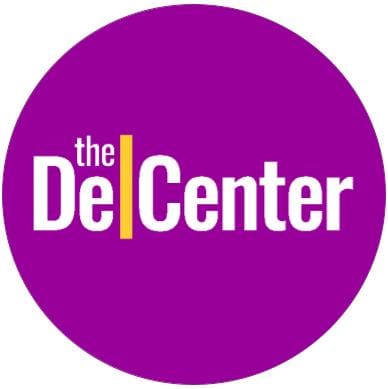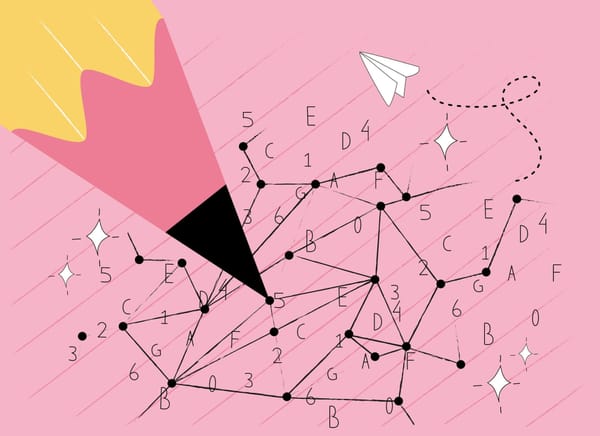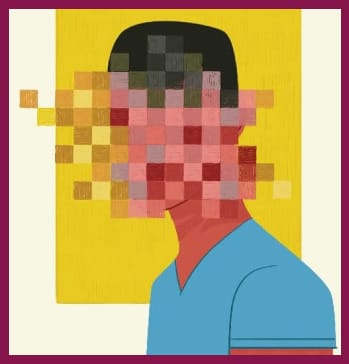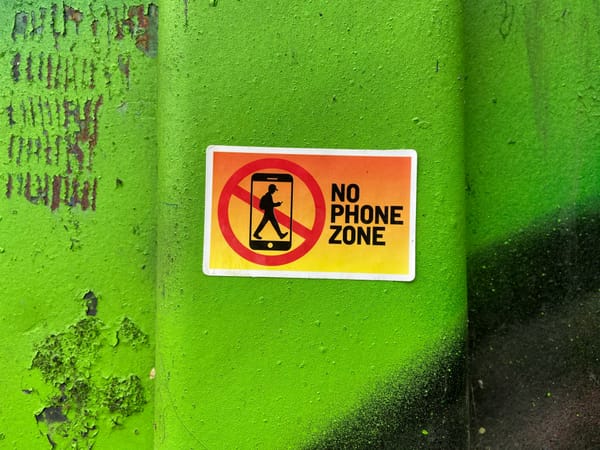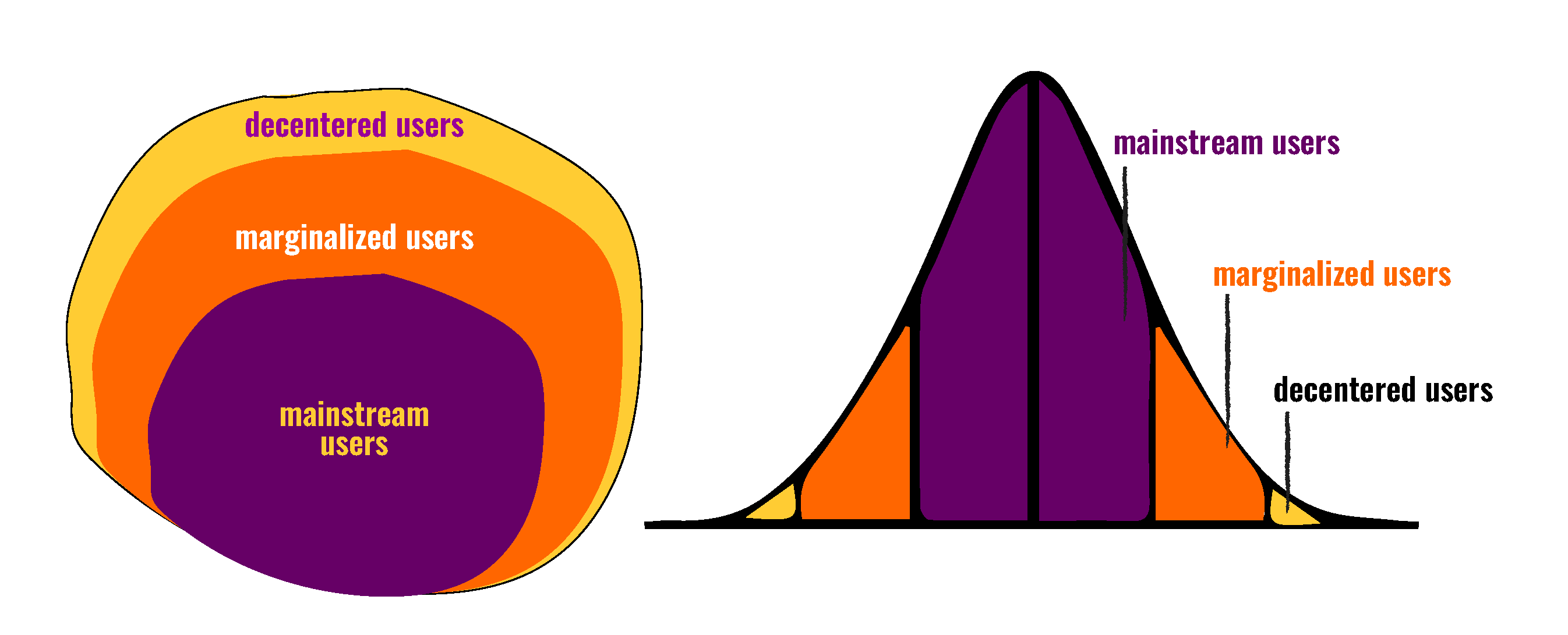We Lost a Leader, His Work Lives
We mourn the shocking death of Imam Muhsin Hendricks, writes Azza Nubi, who advocates through her work with us and her new LGBTIQ+ regional org, LooM SWANA. Plus, RightsCon and a new publication.

Muhsin Hendricks, the world's first openly gay imam, was tragically shot dead in Cape Town, South Africa, on February 15, 2025. His untimely death shocked the global LGBTIQ+ community, especially queer Muslims from our own communities, who looked up to him as a beacon of hope and acceptance. Hendricks' dedication to inclusivity inspired many to challenge stereotypes within religious and LGBTIQ+ contexts, creating safe spaces for those navigating their identities in often hostile environments. His untimely death underscores the very real dangers faced by queer individuals globally from misinformation, hate speech, scapegoating, and policing. It is yet another urgent reminder of the need for ongoing advocacy for marginalized communities who simply seek equality and safety — especially at a time when we continue to be global targets. We hold his memory close.
My advocacy first started in Egypt. The targeting of the queer community there, including digital targeting, has a long history. As far back as 2001, we experienced digital entrapments by police, becoming among the first to be targeted in this way. Under the presidency of Abdel Fattah el-Sisi, starting more than a decade ago now, things took a turn for the worse. We again experienced increases in morality policing through heightened surveillance and the penalization of LGBTIQ+ people.
I started my work during these transitory and volatile periods, bridging my community in Egypt and Sudan. In 2010, while living and working in Egypt on issues related to LGBTIQ+ rights through my co-founding and directorship of the Bedayaa organization, I focused on building and organizing communities in the Nile Valley area. We worked directly with frontline cases to address anything from arrests to the general needs of the LGBTIQ+ community. As the challenges and complexities in the Southwest Asia and North Africa (SWANA) region grew, the necessity to establish an organization that would address gaps my previous efforts and activism had not filled became achingly clear. This conviction led to the founding of Mesahat Foundation for Sexual and Gender Diversity in 2015, with holistic security being one of its main programs.
Drawing from my academic background in applied computer science and a commitment to LGBTIQ+ community members, I began working deeper and deeper in these spaces.
In 2018, I first encountered Afsaneh Rigot, which began a long, working relationship that is culminating in the launch of my own organization, LooM SWANA. When I became involved with Afsaneh’s groundbreaking research, I was associate director of Grindr For Equality (“G4E”), the app’s initiative to promote justice, health, and safety for LGBTIQ+ people around the globe. That research eventually included over 5,000 LGBTIQ+ people in eight countries across the Middle East and North Africa (MENA). It focused on how police weaponized dating, messaging, and social media apps to persecute people — and what tech companies could do to keep them safe.
Through this work, I have developed a new conviction that we need to remain steadfast at the regional level to address the challenges related to LGBTIQ+ rights, holistic security, and digital rights. From the push back from communities in Iran and Tunisia, to the resilience of the Sudanese during war, it is clear.
As we see the same harms and methods used against our communities expand around the world, it is more and more important to be clear about those I am in community with — as well as the harm reduction and resistance techniques that must be built into technologies.
It has all led to now. In 2025 — with the power of passion and invaluable support of a group of brilliant minds — we founded LooM SWANA.
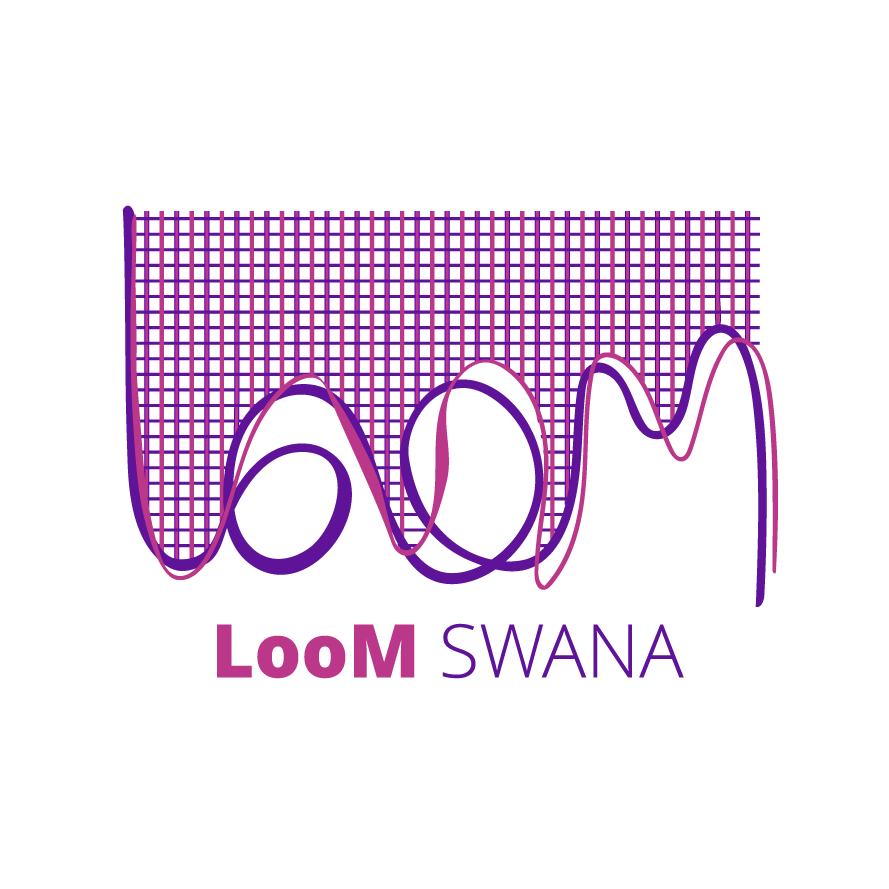
Introducing LooM SWANA
LooM SWANA is a regional LGBTIQ+ organization that pushes for vibrant, resilient, and empowered queer and trans communities across all social, political, legal, and technological realms. We fight for digital rights, holistic security, and internet freedoms while building leadership, amplifying local knowledge, and producing critical research. Through our inclusive "Brave Spaces," we foster meaningful and safe dialogue, and celebrate the power of intersectional activism.
Our mission is to confront the systemic barriers and security threats that face LGBTIQ+ individuals in the region. This effort particularly focuses on holistic security, privacy, and digital rights by us and for us.
At LooM SWANA, we are not just protecting our communities — we are reclaiming our spaces, our voices, and our futures.
As a strategic and activism decision, LooM SWANA operates as a sister organization to the De|Center to ensure that Design From the Margins methods are used in our work. The experience of the most at-risk and vulnerable remain at the center of our advocacy and paths forward. As with our partnership with the De|Center, LooM SWANA's prospective projects will also deeply engage in decolonial research methodology as proscribed by Indigenous activists and researchers.
Digital Rights and Queer Safety Matter!
As wars, armed conflicts, economic deterioration, and political instability persist in the SWANA region, LGBTIQ+ movements face increasing challenges. The global rise of right-wing ideologies — and the uptick in general public resistance to sexual orientation, gender identity, expression, and sexual characteristics (SOGIE) — amplifies the urgency to support vulnerable communities. It intensifies the need for collaboration and establishing broad, cross-cutting alliances between feminist and human rights movements and social change initiatives, particularly in and from countries in the Global South.
Ongoing security challenges, predominantly in the digital realm, pose significant threats to queer and trans community members, activists, and organizations in the SWANA region. We are witnessing escalating risks, especially with technology companies increasingly dodging their responsibilities. At the same time that societal violence and security crackdown by governments in the region are on the rise, financial resources for queer rights groups are on the decline.
By facilitating meaningful dialogues, partnerships, and community initiatives, LooM SWANA aims to empower individuals to confront and collectively navigate the security risks they face. This will ensure that the voices and rights of LGBTIQ+ communities are heard and actively championed in the face of adversity.
We work across the region, including the following countries: Mauritania, Morocco, Algeria, Tunisia, Libya, Egypt, Sudan, Yemen, Saudi Arabia, Sultanate of Oman, Kuwait, UAE, Qatar, Bahrain, Iraq, Syria, Jordan, Lebanon, Palestine, Turkey, and Iran.
While I have been doing this work for many years, I’ve also made a point to train several LGBTIQ+ activists in the region. Our dedicated team includes three passionate activists from Egypt and the US. ”Ibrahim. M” a gay man, ”Midhat. Z” a non-binary/Agender individual, and ”Laura. L” a queer woman, each bringing their unique perspectives and backgrounds with them. Their diverse experiences encompass vital areas such as community building and organizing, effective communications, media advocacy, research, and reporting — as well as a strong focus on holistic security.
Our advisory board includes people who come from a number of countries and cultural backgrounds, such as Iran, Turkey, Sudan, Jordan, Palestine, Bahrain, and the US. They come from a long line of safety and security professional experiences as well as LGBTIQ+ activism in the region.
We look forward to sharing more information about the new initiative that is planned to officially launch at RightsCon in Taipei, Taiwan this month.
For more information about LooM SWANA, get in touch via the following email address: Info@loomswana.org
Note from the De|Center
Our communities are the heart of our resistance — the architects of our work and vision. From the De|Center’s inception, we wanted to move away from the traditional NGO model, not just to sharpen our strategies, but because true transformation comes from the decentered communities themselves. Through this approach, we build technology futures shaped by those most impacted and resist state-driven oppression with collective power and innovation. It’s an honor to have LooM SWANA as a sister organization as it commences and grows.
De|Center in the World
If you are in Taipei for RightsCon, come see us! We promise lively conversations about our past, present, and future works. Here’s where we’ll be:
Tuesday, February 25, 10:15 am Taiwan / February 24, 9:15 pm New York
Safety and security of LGBTQI+ communities in "SWANA" region: challenges and opportunities
Featuring Azza Nubi
Tuesday, February 25, 1:30-5:30 pm Taiwan
De|Center table in the Community Village
Stop by to learn more about our work and pick out a sticker or a “cloaked” notebook!
Wednesday, February 26, 11:30 am Taiwan
Continuing edge-ucation: using design from the margins to learn from Palestine, Iran, Mexico, Kenya, Ethiopia
Featuring Afsaneh Rigot, Azza Nubi, Jessica Fjeld
Thursday, February 27, 10:15 am Taiwan
Let’s talk about the elephant in the room: transnational policing and human rights
Featuring Afsaneh Rigot, David Kaye
Thursday, February 27, 11:30 am Taiwan
Queer over fear: cross-regional strategies and community resistance for LGBTIQ++ activists fighting against digital authoritarianism
Featuring Afsaneh Rigot
Thursday, February 27, 2 pm Taiwan
Safer swipes - designing dating apps from the margins
Featuring Afsaneh Rigot, Apryl Williams, Jessica Fjeld
We Want to Hear from You

We are inviting feedback from tech builders — whether in commercial tech, non-profit, or open-source spaces — on our new guide, Design From the Margins: A Methodology to De-weaponize Tech. It offers an outline of the Design from the Margins (DFM) implementation framework and is designed for those committed to creating just, and rights-protective technologies that resist being weaponized for surveillance, policing, or harm. We are publishing this shortened version as we continue to develop additional resources, in hopes of sparking a consultative process.
Photo: Unsplash @fredrikwandem
